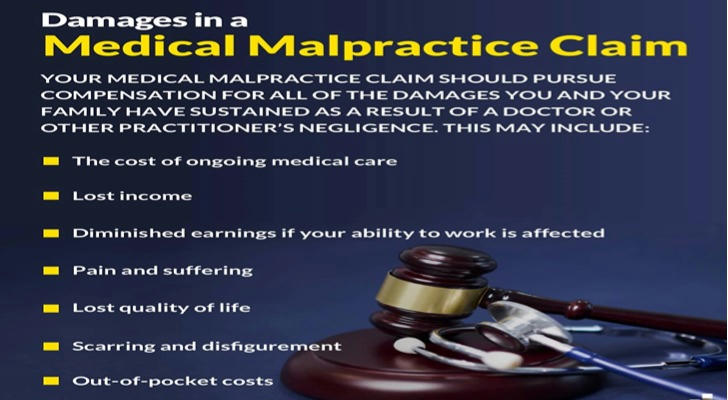Contingency fee medical malpractice legal services
After a medical malpractice incident, the questions that patients and their families are most concerned about include: Is this considered medical malpractice? Did the hospital fulfill its responsibilities? How should I communicate with the hospital? Am I entitled to compensation? How much compensation can I receive? Do I need a specialized medical malpractice attorney team?
However, in the face of the above questions, you should ask yourself whether you have taken the correct actions.
Numerous cases indicate that victims often engage in erroneous actions due to knowledge gaps, resulting in reduced compensation or even an inability to protect their legal rights. For example, signing documents issued by the hospital hastily.
Therefore, without a doubt, you need a medical malpractice law firm with extensive case experience to help you avoid critical mistakes and pursue the maximum possible compensation. You can explore these firms that have handled numerous cases and operate on a no win, no fee basis to see how they professionally manage such claims and help victims secure substantial settlements.

What Is Medical Malpractice?
Medical malpractice, also known as medical negligence, occurs when a healthcare provider deviates from accepted standards of practice and causes harm to a patient. It can happen in hospitals, clinics, nursing homes, or even during outpatient procedures. Contrary to popular belief, not all medical errors qualify as malpractice — but when negligence leads to serious consequences, legal recourse may be necessary.
Common Causes of Medical Malpractice
Medical malpractice can result from a variety of mistakes across different phases of healthcare delivery. Here are some of the most common causes:
1. Misdiagnosis or Delayed Diagnosis
Failing to diagnose or delaying diagnosis of conditions like cancer, stroke, or heart attack can lead to permanent damage or death.
2. Surgical Errors
Wrong-site surgeries, leaving instruments inside the patient, or operating on the wrong patient are among the most serious surgical errors.
3. Medication Mistakes
These include prescribing the wrong medication, incorrect dosage, or failing to check for allergies or interactions.
4. Birth Injuries
Improper handling during childbirth can lead to conditions like cerebral palsy or brachial plexus injuries, often resulting in long-term disability.
5. Anesthesia Errors
Administering too much or too little anesthesia can cause lasting neurological damage or even be fatal.
6. Poor Aftercare or Follow-Up
Negligence in monitoring post-surgery or discharging a patient too early may also be considered malpractice.
Legal Rights: What Victims Should Do First
When a medical error occurs, patients or their families are often overwhelmed with confusion and grief. However, timely and informed action is crucial.
Step 1: Document Everything
Keep all medical records, prescriptions, appointment notes, and hospital bills. These documents form the backbone of any potential malpractice claim.
Step 2: Request a Second Medical Opinion
Seek evaluation from another qualified medical professional to assess the situation objectively and possibly identify what went wrong.
Step 3: Consult a Medical Malpractice Attorney
You should speak with a qualified medical malpractice lawyer as soon as possible. Many lawyers can even identify the key issues and inform you of important precautions during your very first phone call.
What Not to Do After a Medical Injury
Equally important to knowing what to do is understanding what to avoid.
- Do not threaten legal action before speaking to an attorney. This could cause hospitals or doctors to become uncooperative.
- Avoid discussing details on social media. Anything said publicly could be used against you in court.
- Do not sign settlement offers without legal advice. Insurance companies may offer quick payouts far below what you may legally be entitled to.
How a Medical Malpractice Lawyer Helps
Hiring a specialized lawyer dramatically increases your chances of success. These professionals:
- Analyze medical records to identify proof of negligence.
- Consult with medical experts.
- Calculate damages including pain, suffering, lost wages, and future medical care.
- Negotiate with hospitals, insurance companies, or litigate in court.
The professional nature of the above information makes it nearly impossible for the average person to gather it all on their own.
Time Limits and Legal Deadlines
Each U.S. state has a “statute of limitations” for filing a medical malpractice claim — typically between one to three years from the date of injury or discovery. Delaying action could void your legal rights entirely. Speak to an attorney promptly to understand your state’s timeline.
Real-Life Scenarios: When Legal Action Brought Justice
- A young mother was awarded $5 million after a birth injury caused permanent brain damage to her infant, due to a delayed C-section.
- A man in Texas received $1.2 million after a botched knee surgery left him partially disabled, and the surgeon failed to inform him of the risks.
These cases underscore how timely legal support can lead to justice and financial relief.
Final Thoughts
Medical malpractice is a deeply personal and traumatic experience, but victims are not alone. Legal support exists to help you hold negligent parties accountable and secure compensation for your losses. If you or someone you love has suffered due to a medical error, do not wait — consult a specialized attorney today.
